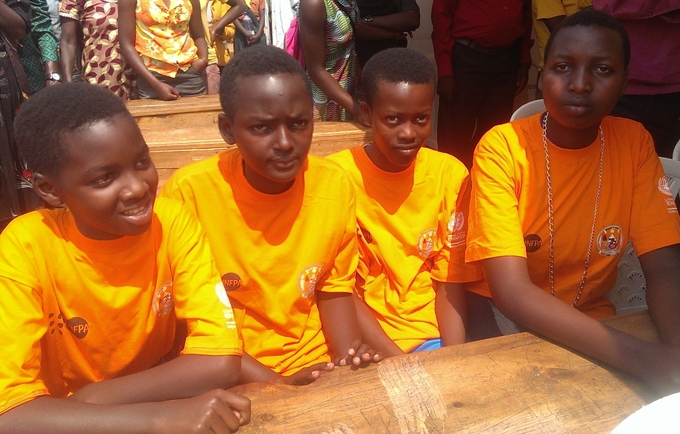Rwanda joined the rest of the world to celebrate the World Population day on 31st July, 2016 in Gatsibo District, Eastern Province. This year’s World Population Day theme “Investing in teenage girls, calls for action to address the enormous challenges faced by teenage girls across the world.
Pregnancy among teenage girls in Rwanda indicates an increase from 6.1 percent to 7.3 per cent according to the demographic and health survey 2014/2015, an issue that nobody should turn a blind eye to.
This makes it urgent for everyone to play their role in reversing the trend to save the adolescent girls from possible effects, including dropping out of school, diseases, sometimes resulting to death.
“The new development agenda calls on us to leave no one behind. To reach those furthest behind, leaders and communities must focus on and stand up for the human rights of the most marginalized teenage girls, particularly those who are poor, out of school, exploited, or subjected to harmful practices, including child marriage. Marginalized girls are vulnerable to poor reproductive health and more likely to become mothers while still children themselves. They have a right to understand and control their own bodies and shape their own lives.” Dr. Babatunde Osotimehin, UNFPA Executive Director in his statement to mark this year’s World Population Day.
“Teenage pregnancy is an issue that affects the very fabric of family and society. Investing in teenage girls is an opportunity for them to stay in school and to some extent prevents teenage pregnancies, HIV/AIDS infection and early marriages. It would ensure they realize their potential and contribute to the socio-economic well-being of our society,” Claver Gatete, the Minister of Finance and Economic Planning said.
“Global statistics shows that, in developing countries, 20,000 girls of between 15 and 19 give birth every day, a third of girls are married before they could turn 18, while one third give birth before 20. Most of them are poor, less educated and living in rural areas. Countries must invest in the health and education of young people, especially teenage girls and create opportunities for them to realise their potential. Without education, with poor health, little or no control over their bodies, teenage girls’ futures can be derailed and their potentials would never be realised,” Lamin Manneh, One UN Resident Coordinator
“When a teenage girl has the power, the means and the information to make her own decisions in life, she is more likely to overcome obstacles that stand between her and a healthy productive future. This empowerment and access to means and information will benefit her, her family and her community” Mr. Jozef Maeriën, UNFPA Rwanda Representative.
“A lot more effort is needed to fully empower young girls to make informed choices that will determine their future…poor rural girls with limited or no access to sexual reproductive health services are at higher risk of becoming pregnant or falling victims to sexually transmitted diseases. Let everyone commit to helping teenagers make right decisions and help them in case their rights are violated so as to develop our country and the future of everyone,” Odette Uwamariya, Governor of Eastern province.
“When countries invest in the health and education of their youth, especially teenage girls, and create opportunities for them to realize their full potential, they are also better positioned to realize a demographic dividend, which can propel economic growth to combat poverty” Mr. Daniel Alemu, Deputy Representative UNFPA Rwanda
“Lack of sex education from parents and teachers is the main cause of pregnancies among teenagers. Those who are lucky to have people who educate them about these issues should take heed of their advice” Diane Munyana, a teenager in Gatsibo
“Poverty is the root cause of pregnancies among teenagers. Poor girls are easily tempted by those who give them nice things and we, parents are the ones to blame. When you follow your children up and discuss with them sexual reproductive health issues, they will most certainly follow the right way,” Silvere Munzanire, a parent.

